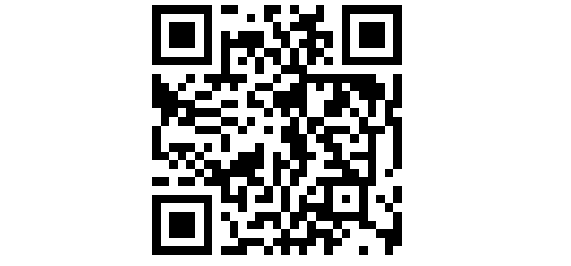Fight The Establishment’s Narratives By Getting Clear On Your Own

Anti-establishment movements are a mess. Whether they're left-wing or right-wing, whether they're statist or anarchist, whether they're organized or decentralized, whether they place emphasis on official or unofficial narratives, any circle of people who are interested in opposing the status quo on a deep, meaningful level almost invariably find themselves significantly bogged down by confusion, paranoia, infighting, and misdirected use of energy.
Every day, for example, I get people in my inbox and social media notifications telling me I shouldn't quote or share anything from this or that lefty journalist or anti-establishment figure because they've said something "problematic" at some point or have some kind of association with some aspect of the establishment. Rather than simply using narrative-disrupting tools wherever they come from to fight the establishment narrative control machine, I'm encouraged to isolate myself to the extremely narrow spectrum of voices which agree with my exact worldview perfectly. This kind of paranoid, self-cannibalizing mentality is rife throughout most anti-establishment circles.
This happens for a number of reasons, including the fact that the ruling power establishment will infiltrate dissident movements that it perceives as a threat with the intent of sowing confusion and division. But the underlying reason anti-establishment circles so often find themselves getting crushed by their own weight is ultimately because life itself is confusing and difficult to understand.
Hardly anyone holds a lucid and steady awareness of just how much of society is comprised of mental narrative. Most people live their lives under the unquestioned assumption that when they are moving around in the world, speaking, acting, forming opinions, having ideas etc, they are interacting with something that resembles objective reality. The truth of the matter is that most of the things which draw people's attention in their day-to-day experience, whether it's names, titles, news stories, political parties, economics, history, philosophy, religion or what have you, consist entirely of mental noises firing off inside human skulls.
You might think it's a big jump to go from chatting about the sociopolitical dynamics within dissident movements to making vaguely Buddhist-sounding observations about human thought, but it's really not. The reason our species is in a mess right now, and thus the reason movements exist which seek to change the status quo, is because so much of life is dictated entirely by made-up mental narratives which can be easily controlled by the powerful, and hardly anyone fully grasps this. If they did, the revolution against the establishment would very smoothly and quickly succeed.

Scientific research has found that astronauts suffer problems with coordination, perception and cognition when they are unable to determine which way is up in space. There is no "up" or "down" when you're outside the gravitational pull that our bodies are adapted to, so its absence sends our whole system out of whack. Navigating a society that is made of mental narrative is very much the same; if you don't know which way's up, you'll get lost and confused. Before you can see the narrative matrix clearly, you might be aware that some narratives serve power and swat at them while you're spinning through space, but you won't have any solid ground on which to orient yourself for the purpose of forming a clear path forward toward a healthy and harmonious world.
Your first and foremost task as a revolutionary, therefore, is to find solid ground on which to plant your feet while operating within a swirling sea of narratives and counter-narratives. Without this you'll find yourself expending energy on ineffectual agendas, chasing shadows, attacking friends and advancing the interests of the enemy as you stumble around trying to fight a threat you can't even see clearly. You've got to figure out for yourself which way's up.
The only way to do this is to turn inward and sort out your own mental narratives in your own experience. This takes a lot of dedicated work, because there are many layers of tightly believed narratives which dictate one's perception of the world that most people aren't even aware of.
As soon as we're born we are given a name which has nothing to do with the nature of the slimy, screaming naked creature which came roaring thunderously alive out of the womb. We spend our childhood being told who we are in various ways by our family, then we go to school to get taught how to think like everyone else and get labeled good/smart or bad/stupid for the rest of our lives based on how well we dance that dance. Along the ride we pick up coping mechanisms to deal with the stress of this whole unnatural ordeal, many of which become extremely counterproductive unconscious habits in later years. We pick up likes and dislikes, interests and aversions, life philosophies, religious beliefs, societal beliefs, political beliefs, all of which come together to form our worldview.
Because the foundations of our entire worldview are formed in early childhood long before we're mature enough to decide for ourselves what a useful foundation might look like, we wind up interfacing with life through this muddled, inefficient network of mostly unconscious mental and perceptual habits which don't serve us very well. It is with this warped, endarkened tool that we interact with the vast sea of official and unofficial narratives we are presented with in our attempts to decipher what's wrong with the world and how to fix it.
The path, then, is to unwind this whole confused, unconscious muddle of mental and perceptual habits until we get to the untarnished blank canvass of that powerful screaming baby who first met this wild world, and inhabit it consciously. That right there is our solid ground.

Who are you? Underneath the mental narratives about who you are? Underneath all the stories, labels and beliefs? Underneath the field of consciousness full of thoughts, sensory impressions and feelings? This is the most important inquiry that anyone can possibly engage in, and it is worthy of the entirety of your focus until it's resolved.
All of these swirling, babbling thought stories have dictated our lives for as long as we can remember, but rarely does anyone sit down and start sorting out where they come from and if they're useful. We lug around ancient mental narratives about life, about how we should be, about how other people should be, about the best ways to find happiness, about the best ways to avoid unhappiness, and we rarely consider the possibility that we can interact with life unencumbered by that heavy load.
If you want to find solid ground beneath your feet so that you can push effectively for a healthy world, you've got to question every assumption you've ever made about yourself and the nature of the world, even your very most fundamental assumptions, because it's all narrative. As you turn your attention toward your essential nature and away from your churning, babbling mental habits, interest and attention will move away from mental narratives and toward the solid ground upon which they appear. The mind will relax and mental narrative will take on its proper role as a tool that can be used when it's useful and set down when it isn't, rather than the dominating feature of every minute of waking existence. Unhelpful mental habits can be discarded, and all attempts at narrative manipulation will stand out like a black fly on a white sheet of paper.
I can't tell you how to do this. Everyone's path to the heart of the fundamental matter is unique, and you can only travel it on your own. I can tell you that the answer does not exist in the realm of thought, and that it is closer to you than your own breath. Sincere, dedicated inquiry into your own true nature, on your own and in your own way, will lead you to the ground on which you must take your stand in order to fight the establishment narrative machine effectively.
The best way to get around the internet censors and make sure you see the stuff I publish is to subscribe to the mailing list for my website, which will get you an email notification for everything I publish. My articles are entirely reader-supported, so if you enjoyed this piece please consider sharing it around, liking me on Facebook, following my antics on Twitter, throwing some money into my hat on Patreon or Paypal, purchasing some of my sweet new merchandise, buying my new book Rogue Nation: Psychonautical Adventures With Caitlin Johnstone, or my previous book Woke: A Field Guide for Utopia Preppers.

Bitcoin donations:1Ac7PCQXoQoLA9Sh8fhAgiU3PHA2EX5Zm2
What an excellent and encouraging piece you've written here! Thank you!
"Is it true, as Aesthetic Realism said years ago, that man’s deepest desire, his largest desire, is to like the world on an honest or accurate basis? And is it true, as Aesthetic Realism said later, that the desire to have contempt for the outside world and for people and other objects as standing for the outside world, is a continuous, unseen desire making for mental insufficiency?"
Eli Siegel
I literally just wrote down "Trust that your art will find the right heart" as a future poem line idea, and the very next thing I read was your piece here -- it {{{resonated}}} so much! Please keep on sharing your gifts with the world! <3